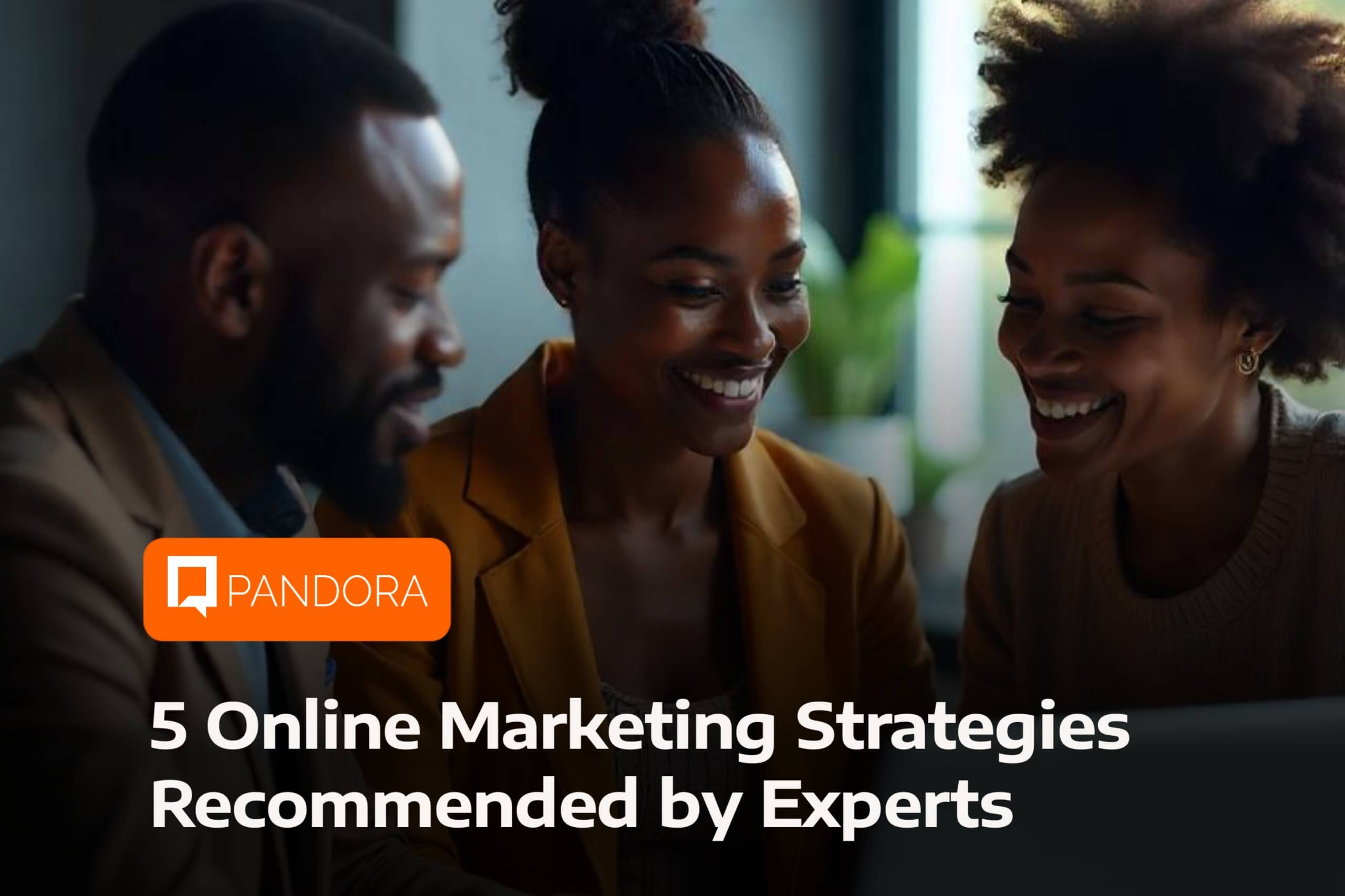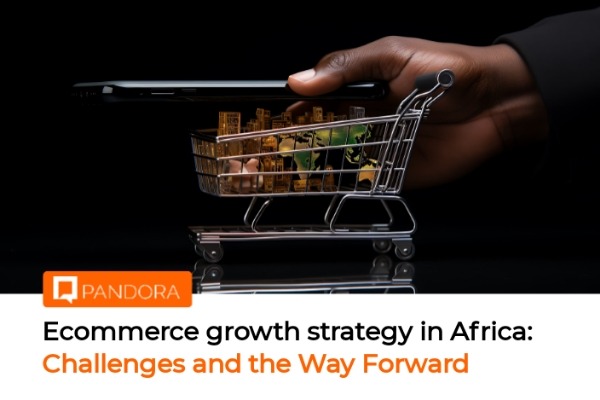Zero-click marketing, getting back to the basics, and prioritising local SEO—these are some online marketing strategies you need to look forward to executing come 2025. As online marketing keeps getting more popular, so is competition and marketing dynamics. It is vital to get up to date with marketing trends and stay ahead of the competition.
We have drawn from our experiences as a marketing agency in Nigeria and curated the thoughts of high-ranking marketing experts from around the globe. Walk through this article to learn about these strategies and how to deploy them in your business.
5 Online Marketing Strategies You Need to Survive as a Business
If you are a beginner in online marketing or facing challenges trying to market your products or services, it is good to know the strategies that can enhance your marketing efforts and reach your target audience effectively. Here are five strategies to get you up on your feet:
1. Explore Zero-Click Marketing
Zero-click marketing means providing users with immediate answers or content directly within a platform or search engine result. This occurs when a user finds your content as an answer to their query in the search results without clicking a link on the search engine results page. This also includes when customers consume your content on a platform and get all the information they need without clicking a link that takes them outside the platform for more information.
The idea of zero-click marketing includes providing standalone value in one platform or one content. In other words, as a marketer, you can no longer depend on the expectation that users must click on links to see the value you offer. This calls for optimising impressions to get conversions and enhance your marketing efforts. Why is this happening?
Different factors contribute to zero-click results, from social media platforms offering in-app purchase functions to advancements in AI resulting in AI overviews and users adopting AI chatbots. According to Sparktoro’s cofounder and CEO, Rand Fishkin, here’s an example of what is happening:
Back in the day, around 2016, content distribution did quite well for marketers, but it doesn’t work too well anymore. This is because, instead of driving traffic to your website, social media platforms would rather keep them to get more money and grow their advertising revenue.
Hence, whatever information in a link you want users to click, Facebook, for instance, has put those on their platform to keep the traffic, and their algorithms are biased against links, making links less effective. Have you wondered why Instagram and TikTok do not allow links except in your bio, and that’s if you have over one thousand followers for Instagram? To keep users within their platforms. Others, such as Twitter, LinkedIn, and Threads, also reduce the reach of posts with links.
Even Google is not exempt. Two-thirds of all searches end without a click, and 58.5% of Americans in 2024, for example, do zero-click searches as people get their answers right on the Search Engine Result Page (SERP).
So, what should marketers do? The answer is zero-click marketing. For example, publishing your content on social media platforms without a link optimises for visibility and engagement and not just for clicks. Additionally, answering queries with large language models in mind goes a long way to helping your website rank for AI overviews.
2. Get Back to Some Basics
We live in 2024, where AI-powered marketing tools are becoming more widespread. With access to these tools and platforms, almost everyone has gone into marketing. But what kind of marketers is AI turning us into?
Here’s what Ryan Deiss, founder and CEO of Idea Incubator, has to say about this: when everybody is doing marketing and when everybody thinks they can do marketing, the edge will not come from mastering AI tools; rather, it will come from getting back to some basics, reevaluating the things that used to work. This is because, as big as AI is, an even bigger change that’s taking place right now is the microeconomic change, and understanding how to market during this time is important. So, getting the basics right is essential.
This brings us to the principles of marketing, which Ryan said are messaging and amplification. As a marketer, you need to have a message and amplify that message. To achieve this, you need to master the art of messaging and the proper use of channels and funnels. This is like going back to marketing fundamentals to lay the proper foundations. Genuine marketing begins with research, and business executives draw a successful marketing strategy from market research.
3. Prioritise Local Content in SEO
What is local content? Local content is unique and useful content created to drive traffic from a specific geographical area to your local business website. It involves creating informative or entertaining content for people in that area. The aim of creating local content is to promote your products or services to potential customers within a specific geographic area.
Why is this important?
According to Niel Patel, founder of NP Digitals, local SEO populates searches for a specific local area. Businesses with brick-and-mortar stores can benefit from having their local audience find them through a web search. This is why they need to prioritise local content. This includes creating content with language and cultural nuances that speak to new audiences. With the help of local SEO, your small business can show on the local search panel when nearby searchers search for products or services you offer.
4. Focus on Building Human Connections
While many marketers focus on streamlining processes and saving time, human connections help you understand the feelings and needs of others, which allows you to engage with customers on a deeper level. There are various benefits of connecting with people on a personal level. One outstanding benefit is relationship building, which, according to the chief principal officer of Pandora Agency Ltd., Kehinde Ruth Onasoga, can open doors of opportunities for marketers.
This is important because healthy relationships facilitate greater learning and knowledge sharing, improve retention and engagement, and increase innovation and performance.
Veteran digital marketer Ann Handley puts it thus: “B2B marketers need to focus on building human connections and relationships, even if it means taking longer to close a sale. This approach builds customer trust and loyalty, which is invaluable in the long run.”
5. Don’t Just Grab Attention—Build Trust
According to business executive Seth Godin, it is always good to go beyond attention-grabbing as a business by developing trust with your audience. The first step to developing trust is to know who your audience is on a deeper level and serve only the content they have asked for when they ask for it.
Attention-grabbing is important as it helps you stand out from other businesses. However, as Godin points out, businesses continuously try to steal the attention of unwilling customers, and those customers are growing tired of it. In today’s competitive digital marketing arena, it’s becoming easier for customers to ignore unwanted marketing messages.
So what’s the solution? The answer is simple: get to know who your audience is and what they want. Then, create the kind of content they want and serve it how they want it, where they want it, and in the format they love.
Summary
Online marketing will continue to grow as businesses continue to promote their brands to connect with potential customers. It is cheaper and can help businesses reach more people. However, without proper strategies, a lot of money spent on online marketing can be a waste. Therefore, this calls for exploring and applying working strategies that drive business growth.
If you need help with your online marketing strategies, check out these Content Marketing Agency Services in Nigeria | Full Service Content Creation to see the best services available.






Leave a Reply